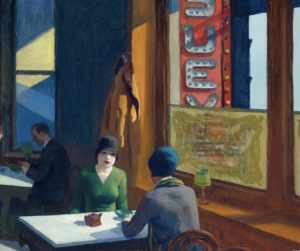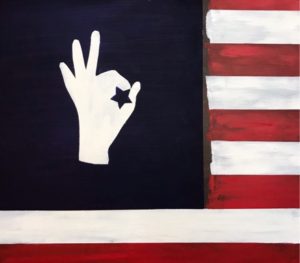By Arthur H. Gunther III
the columnrule.com
(also on Facebook)
One of the non-dynamics of “progress” is that as new technology replaces the old, tried and true habits honed by trial, error, ingenuity, make-do and survival are sometimes cast aside, even lost.
For example, in this age of omnipresent air conditioning, a simple concept like hot air circulation is forgotten. A few years ago, I was in an old New York village on a very hot day attending a gathering in a late 1800s building, three stories high. No AC, and it was stifling with perhaps 100 people there. The windows were open, but they were awning types, so there was no circulation like you get with double-hung windows. Wiping away the sweat, I looked up, and near the ceiling there were other windows, all shut but with long chains dangling. It was obvious that the chains were pulls meant to open the upper windows so that the heat could escape, replaced by cooler ground-level air.
Once upon a time this building would have had a sexton whose job it was to open those upper windows, or there would have been a fellow who understood the common sense of air circulation that he simply wouldvhave pulled on those chains. An art lost, it seems, in the modern AC age.
You can extend this thinking to other things: When I was younger, there was a neighborhood carpenter who would fix furniture so that you didn’t have to throw it out. Someone brought him a large table, probably 100 years old, most likely made from wood that was 200 years in the growing. The table had split after decades of drying, and it looked lost by today’s standards. But this crafty fellow, after scratching his head a bit, reached into his coveralls’ upper pocket, took out his folding rule, measured along the table’s 8-foot length, went over to an old woodpile, pulled out some oak scraps similar to the table’s stock, hand-cut these pieces into wedge shapes, traced them on the table, cut holes and then glued everything together with huge pipe clamps, the tools also made from scrap — old plumbing.
That table is still in my friend’s house. Today it might be on the junk pile, replaced by a new one much younger and perhaps less beautiful.
The lesson of the story is that in a faster-paced world, on the quick journey, we sometimes forget to bring along the skills that once made us survive, those efforts that also instilled pride in what we could accomplish.
The writer is a retired newspaperman. This essay is based on an earlier piece.


